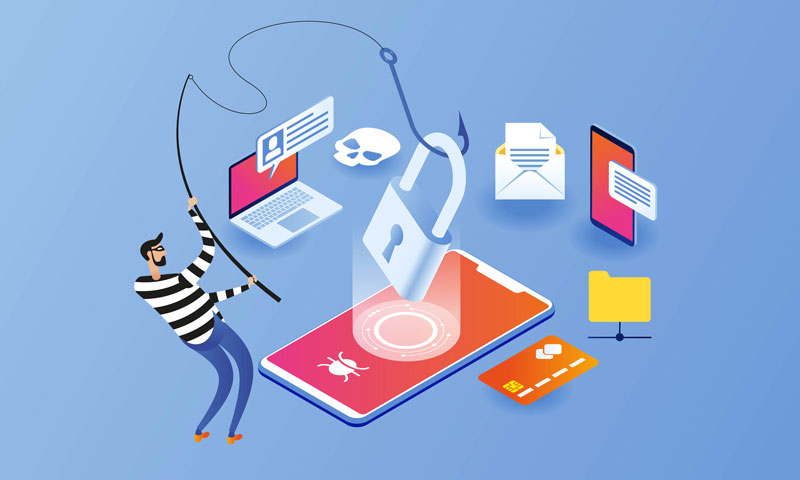Phishing scams are scams in which fraudsters attempt to trick people into revealing personal security information. The fraudster can then monetise this in some way. Most phishing is done by email, through texts and phone calls may also be used.
The bad news is that it is so cheap and easy to send bulk emails. Therefore, it is highly unlikely that these attacks are going to stop (or even reduce) any time soon. The good news is, that phishing emails are often very easy to spot. Here are three tips on how to identify phishing attacks:
How to identify Phishing Scams
Phishing Scams : Tip 1 – Legitimate authorities will never ask for your security information
If you call your bank, you may be asked to input security information over the phone before you are connected to a human. However, you will not be asked to provide details such as your full password or pin over the phone. You may, however, be asked for the first and third digits of your password.
Windows login can be reset by your IT Support provider that Support your Tech. So can your security data can be reset by the company behind the service you use.
Phishing Scams : Tip 2 : Assume all links are fraudulent
It’s sad to say but at this point in time, it’s safest to assume that any link in an email has the potential to be malicious. Even if it was sent in good faith. Therefore, you need to resist the temptation to click on them unless you are absolutely 100% sure that they really are what they purport to be.
If you’re interested in checking out what they have to say, then go and look them up on a legitimate source (such as Google). You can follow any links you find from there, using common sense, or log into your bank or PayPal directly. Do this, rather than through the link in the email. You can also hover over a link in an email and see which URL it is pointing to. This can be useful when a text link obscures the web address.
Phishing Scams : Tip 3 : Legitimate organisations use the phone for emergencies
Phishing does happen by phone as well as online. You do need to take precautions even when you are speaking to an actual human. However, the relative expense and difficulty of making actual voice calls means that this form of phishing is (currently) much less common. Companies such as banks are likely to use the phone if they suspect, for instance, that your account has been hacked or other emergencies.
So, if you receive an email, text message or recorded message claiming to be from a legitimate business, then it is a distinct possibility that this will be a phishing attempt. If it’s a phone call, and they tell you to take some form of action urgently, it is still a possibility.
However, if you want to be sure, ignore any and all contact details in the message itself and contact the company by the usual channels to confirm (or not). If you do not know these details, look them up using a trusted source such as Google.
Businesses can be as vulnerable to phishing attempts as private individuals too. You should always take the same precautions. Check the return email address in any email thread, double-check URLs before you click. If in doubt, go to a website directly or via Google search. Keeping alert to such cyber security threats, certainly makes good business sense too. Taking the extra security precautions will ensure your clients and customers stay safe too. Keeping out of the hackers grasp, underlining why loyalty matters in business.

